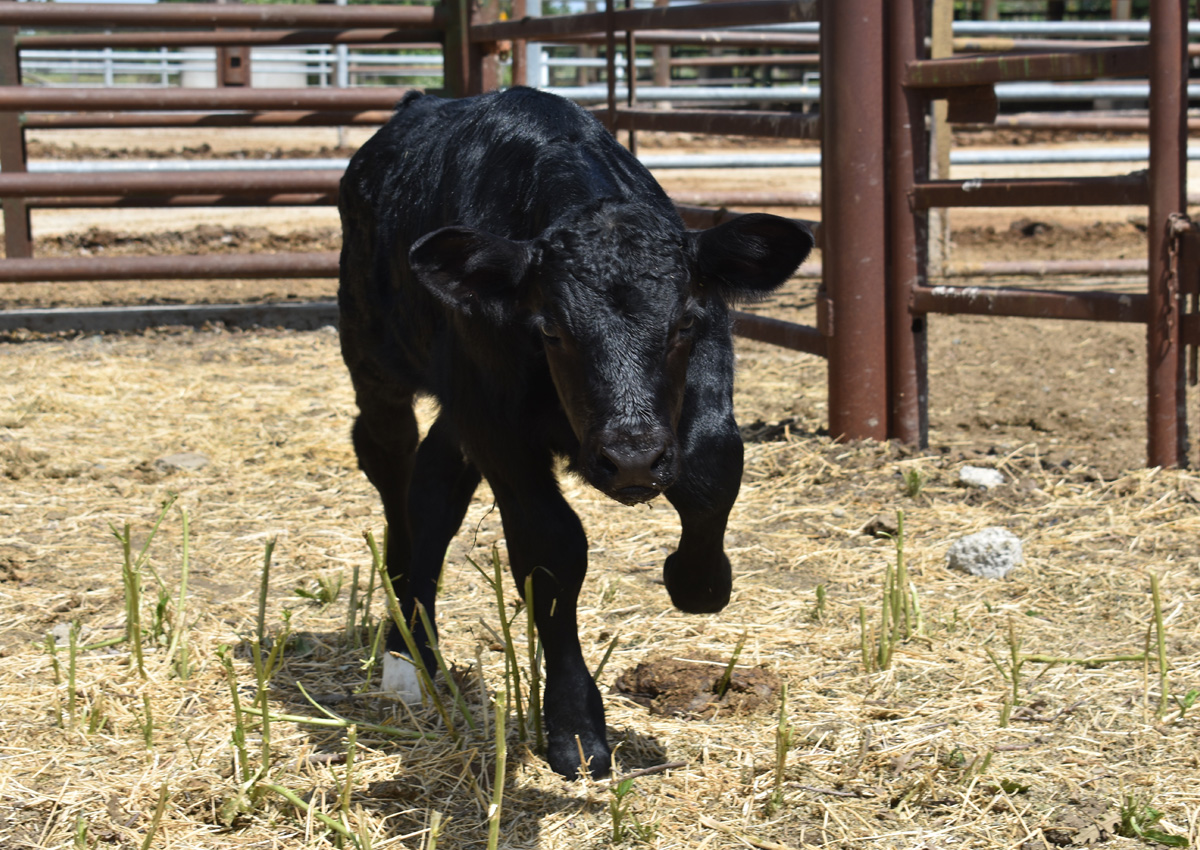
UC Davis Scientists Use CRISPR Technology to Develop Bull that Produces 75% Male Offspring
July 29, 2020| |
Scientists at the University of California, Davis have successfully produced a bull calf who was genome-edited as an embryo so that he will produce more male offspring. The bull, named Cosmo, was presented in a poster at the American Society of Animal Science meeting on July 23, 2020.
Using CRISPR technology, researchers make targeted cuts to a particular genome or insert useful genes, which is called a gene knock-in. In Cosmo's case, the scientists successfully inserted or knocked-in the cattle SRY gene, the gene that is responsible for initiating male development, into a bovine embryo. This is the first demonstration of a targeted gene knock-in for large sequences of DNA via embryo-mediated genome editing in cattle.
The SRY gene was inserted into bovine chromosome 17, to ensure which is a genomic safe harbor site. This ensures the genetic elements function predictably and do not disrupt the expression or regulation of adjacent genes. Chromosome 17 was chosen after unsuccessful attempts to knock-in the gene on the X chromosome, which would have resulted in a bull that produced only male offspring. Cosmo is expected to produce 75 percent male offspring — the normal 50 percent XY animals, and another 25 percent XX animals that inherit the SRY gene.
"We anticipate Cosmo's offspring that inherit this SRY gene will grow and look like males, regardless of whether they inherit a Y chromosome," said Alison Van Eenennaam, an animal geneticist with the UC Davis Department of Animal Science. She says part of the motivation to produce more male cattle is that male cattle are about 15 percent more efficient at converting feed into weight gain and are more fuel-efficient than females. Additionally, they tend to be processed at a heavier weight.
For more details, read the news article in UC Davis News.
| |
You might also like:
- Hornless Cattle Now Possible Thanks to Genome-editing
- Genetic Find Might Lead to More TB Resistant Cattle
- DNA Traces Cattle Evolution
Biotech Updates is a weekly newsletter of ISAAA, a not-for-profit organization. It is distributed for free to over 22,000 subscribers worldwide to inform them about the key developments in biosciences, especially in biotechnology. Your support will help us in our mission to feed the world with knowledge. You can help by donating as little as $10.
-
See more articles:
-
News from Around the World
- ISAAA Video Shows How to Genetically Engineer a Plant
- Cuba Passes Law to Create Regulating Commission for the Use of GMOs
- German Researchers Decode European Maize Genome
-
Research Highlights
- Gene Switches for Height Identified in Plants
-
Plant
- UC Davis Scientists Use CRISPR Technology to Develop Bull that Produces 75% Male Offspring
- CRISPR-Cas9 Sheds Light on Spikelet Development in Rice
- Scientists Describe Protocol for Multi-gene Genome Editing in Maize
- 132 Research Institutes and Associations Urge the EU to Reconsider Stance on Genome Editing
-
Health
- Moderna's COVID-19 Vaccine Advances to Phase 3 COVE Study
- Study: Heartburn Medicine Doesn't Work as COVID-19 Antiviral
- International Team of Researchers Identify Evolutionary Origins of SARS-CoV-2
-
Read the latest: - Biotech Updates (December 3, 2025)
- Gene Editing Supplement (November 26, 2025)
- Gene Drive Supplement (February 22, 2023)
-
Subscribe to BU: - Share
- Tweet

